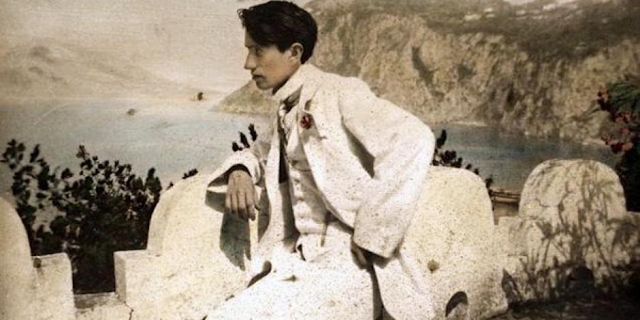I'm amazed this blog still generates hits as I haven't posted anything of substance in years. The last post was simply a meander on my thoughts on the current state of affairs in Russia.
I sorted through my Russian books as I cleaned my attic space in an effort to make more room for my ever growing vinyl collection. I kept my favorites upstairs, stuffing them into a narrow cabinet in one corner. Trying to fit everything into this small place made me think of a short story by Sigizmund Krzhizhanovsky, in which he stumbles upon a magic paint that makes his tiny room grow bigger and bigger until he eventually gets lost in it. He was a forgotten writer until resurrected not so long ago by the New York Review of Books, which has since translated his short stories and novellas into five volumes. Well worth reading.
There are so many of these writers who wrote during the Soviet era and whose works were essentially buried. Bulgakov's The Master and Margarita didn't come to light until the 1950s when Khrushchev initiated "The Thaw," and was subsequently translated into English and other languages to become an international bestseller. It was all part of Moscow's Magic Realism, to read this review in the NYT, but Russians long had this sense of the mythical and real worlds colliding in literature, dating back to Gogol. It grows out of their folk legends. It's just that now they used it to escape the oppressive Soviet state.
It will be interesting to see what Putin's repressive regime inspires. There have already been a few books that have emerged and captured the world's attention, like Sin by Zakhar Prilepin, who has been an outspoken critic of Putin. My favorite is Viktor Pelevin, who had kind of a rough start but has since garnered a worldwide audience. Generation Pi is a fantastic read and was made into a captivating movie. It was subsequently translated under the title Babylon in which he eviscerated the growing Western influence on Russian culture in a scathing satire. Pelevin was kind of a pre-Putin writer, although he continues to publish wicked little books like S.N.U.F.F.
I don't really know where Pelevin stands on the current state of affairs. He still seems largely preoccupied with mash-ups of Russian and Western archetypes much in the vein of Kurt Vonnegut, who I would think was a major source of inspiration. Not like Russia hasn't had its own share of satirical writers with a passion for science fiction, but Vonnegut is a favorite over here.
There's certainly plenty to write about from Putin's attempt to create an artificial moon to provide light during those long Russian winter nights, to his recent threat of putting nuclear warheads in space. Unfortunately, not too many writers have the temerity to challenge him other than Vladimir Sorokin, who has been around long enough to know how these Russian tyrants get their comeuppance. Sorokin also likes to venture into the near and distant future in his novels. His most famous book is Day of the Oprichnik, which perfectly captures the mafia mentality of the current state, albeit set in the not so distant future.
What fascinates me about Putin and contemporary Russophiles is their fear and loathing of the West, given how much they have become addicted to all its pleasures. Tell me an oligarch who doesn't love the West, at least before Putin attacked Ukraine. They were all living lavish lifestyles until their foreign assets became impounded, and now find that those assets may be used to arm and ultimately help rebuild Ukraine after the war. How's that for irony!
Now we see Russia turning toward the East in an effort to bolster its flagging economy and war effort, yet finding the fit rather uncomfortable as China exercises an ever-growing influence in its country. For now they have a shared loathing of the US and EU but China knows it can't abandon the West given its extensive trade relationships. Same goes with India, which Putin is also courting. I suppose in time they may come up with an economy to rival the West but until they do they need the West to sustain their current economies.
I wasn't going to get political but couldn't stop myself. It is really hard to separate the two these days no matter how hard I try. Best to treat it as satire. That way I can laugh at the horror of it all. I suppose that spurred Krzhizhanovsky as Russia crumbled around him and a new Soviet state was born from its ashes. It is also worth noting he was born in Kyiv, and was Russian only in the "empirical" sense of the term. His parents were Polish-speaking Ukrainians. He was also quite the Anglophile to read this blog. Anyway, I think I will explore more of his Memories of the Future.

Comments
Post a Comment